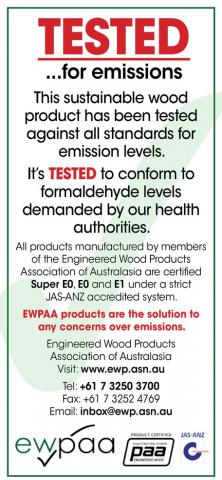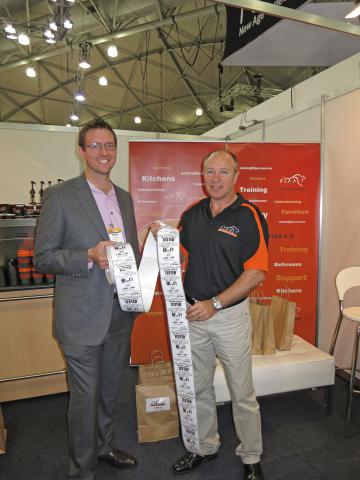
An Australian-made procurement policy by federal and state governments would “turn the tables” on shoddy furniture imports, mostly from Asia, that continue to fail Australian standards for consumer safety and trusted forest certification, FIAA general manager Dean Brakell said at AWISA 2014 in Brisbane.
“Such a policy – and other countries like Canada are doing it – would almost turn the fortunes of furniture manufacturers overnight,” Mr Brakell said.
“We are continuing to take the fight to Canberra and we’re working closely with the influential Furniture Cabinets and Joinery Alliance which met with federal Department of Industry officials at an industry forum at AWISA last week.” (A report on the forum will appear in next week’s T&F enews).
“It’s simple,” Mr Brakell said. “We want products to conform to certified sustainable forests rules, third-party accreditation and compliance with Australian building standards.
“A level playing field is a no-brainer.”
Mr Brakell said Furnishing Industry Association of Australia members had enthusiastically joined a consumer awareness campaign by the Engineered Wood Engineering Association of Australasia, which included point-of-sale fliers that guaranteed Australian and NZ engineered wood products were tested to conform to safe emission levels demanded by health authorities.
The labels have been issued to more than 500 FIAA members Australia-wide; many of them have individually repeated orders for up to 1000 ‘green label’ stickers which they attach to product packs at distribution points carrying a message that products manufactured by EWPAA members are certified Super E0, EO and E1 under a strict JAS-ANZ accredited system.
EWPAA laboratory tests have shown some imported wood panels with emissions greater than 3 mg/L, well above safe levels recommended by the federal government’s National Industrial Chemicals Notification and Assessment Scheme (NICNAS).
Random testing has revealed unsafe materials are still entering the Australian market – a potentially serious problem.


